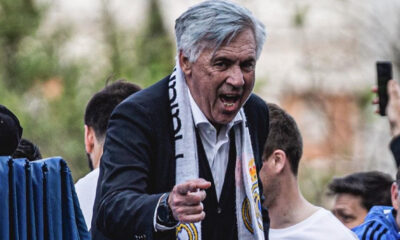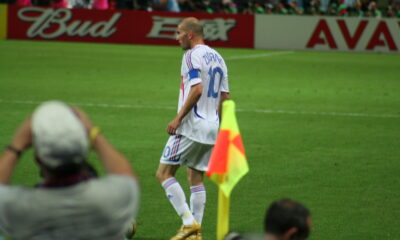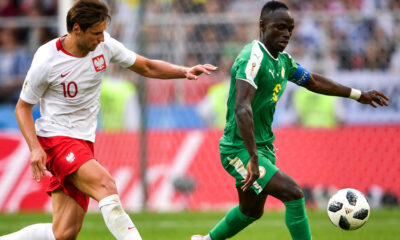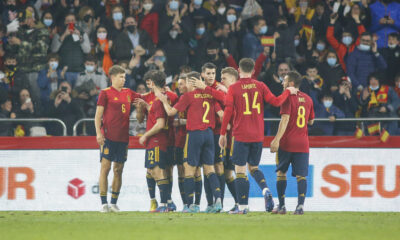Football
1998 World Championship in France: The golden goal, the home winners, the Czech disappointment in qualification, the star Šuker
The 1998 World Championships were hosted by France in 10 cities. This tournament had to do without the 1996 European runners-up – the Czech Republic. However, the 16th World Championship offered many memorable moments and great matches, led by France’s home victory!
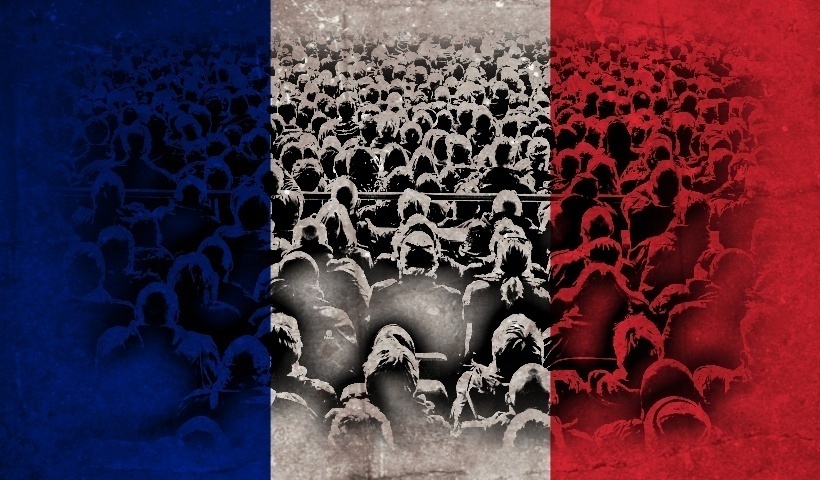
The 1998 World Championships were hosted by France in 10 cities. This tournament had to do without the 1996 European runners-up – the Czech Republic. However, the 16th World Championship offered many memorable moments and great matches, led by France’s home victory!
The 1998 World Championship in France was the 16th tournament in history, with 174 teams qualifying for the event. However, only 32 of them were able to play in Saint-Dennis, Montpellier, Nantes, Marseille, Saint-Étienne, Bordeaux, Toulouse, Lens, Lyon and Paris.
It was for this World Cup that FIFA not only changed the game format of the tournament, but also increased the number of countries that can participate in the World Cup. In previous championships, only 24 teams could make it to the World Cup.
To put it better – not that the International Football Federation has outright changed the game system as such, but with 32 participants, the ranking of third teams fell out after the end of the World Cup’s main groups. For many, one could say – finally.
Since the 1998 World Cup in France, the familiar division of the championship has been in place, i.e. the simple eight basic groups and then the knockout stages of the eight finals, quarter finals, semi finals, finals and the bronze medal match.
The qualifiers, the big disappointment in qualification or the World Championship without the Czech Republic
The 1998 World Championship, however, had to do without the Czech Republic as Euro 1996 runners-up. The Czech team did not qualify for the 1998 World Championship in France and thus already in the qualification round there was a big surprise, which was of course a huge disappointment for the Czech fans.
More about the Czech national team’s performance in the qualification for the 1998 World Cup in France can be found in our special feature attached above. It is there that my colleague and one of the most experienced football journalists in the Czech Republic, Stanislav Hrabě, who took part in the tournament as a journalist, provides his excellent insights.
So if you are interested, do not hesitate to come and listen to the roughly one-hour talk full of otherwise hard to follow interesting facts and personal observations. And of course not only about the qualification disappointment, but about the whole tournament.
Anyway, as far as the specific qualifiers are concerned, the 1998 World Cup in France included 15 European teams, 7 American, 5 African and 4 Asian. For the last-named continent, these were the national teams of Iran, Japan, South Korea and Saudi Arabia.
Nigeria, Morocco, Cameroon, South Africa and Tunisia were the representatives of Africa. For the American continent, the following countries travelled to the championship – Paraguay, Colombia, Argentina, Brazil, Jamaica, the USA and Mexico.
Traditionally, Europe was the most represented at the 1998 World Cup, with the Austrians, Germans, Romanians, Bulgarians, Italians, Belgians, English, Norwegians, Serbs and Montenegrins, Danes, Dutch, French, Croatians and, last but not least, the Scots and Spaniards qualifying for the tournament.
The Golden Goal
The big news at this World Championship was the golden goal, which was the Czech national team’s last goal in the Euro 1996 final. However, this rule was not compulsory and the organisers of each competition could decide whether or not to apply it.
However, we believe that the golden goal is such a well-known concept that it is not necessary to discuss it in detail in this article. What’s more, we discuss the golden goal more in our aforementioned special feature.
A home fairy tale, a great Croatian campaign, silverware for Brazil
It was the best World Cup in football history for France. And the word magical can be applied to it all, as the French won gold on home soil. The French national team went through their preliminary group without any problems, as after three matches they had three wins, nine points and a score of 9:1.
In the knockout phase, however, there were even matches and tough battles. Even the eighth-final match against Paraguay had to be decided in extra time, although France was the better team. However, Laurent Blanc ended the match for the French in the 113th minute. He thus became the first footballer in history to score a golden goal.
As for Croatia and Brazil, two of the top three teams in the tournament, the Croatians advanced to the eighth round from second place in the preliminary group, leaving Jamaica and a toothless Japan behind.
The Brazilians did lose once in Group A, but in the end two wins were enough to take the group ahead of Norway, Morocco and Scotland. On the other hand, in the eighth round, the Brazilian national team beat Chile 4-1, while the Croats were sent through Romania by the star Davo Šuker.
They then excelled in the quarter-final against Germany, when they managed to stop the momentum and win 3:0. Brazil lost to Denmark at first, but then won 3: 2 thanks to goals from Bebet and Rivaldo to advance to the semi-finals. France faced a tough opponent in Italy and the match went to penalties. The memorable match, or rather the penalty shootout, was dominated by the French.
Great semi-final battles, a great final and the battle for bronze
The semi-final then brought a tough battle between Brazil and the Netherlands, for whom Patrick Kluivert and Dennis Bergkamp were already on the bench. The first goal was scored by Ronaldo in the 46th minute, but Kluivert equalised with three minutes left in regulation time to make it 1-1.
This tightly contested match then went to a penalty shootout, in which the Brazilians converted all their shots and advanced to the final. Croatian Šuker’s goal in the second semi-final against France was not enough as Lilian Thuram scored two goals to decide the match.
The bronze medal match between the Netherlands and Croatia was dominated by the latter. In the 13th minute, Robert Prosinečki snatched the lead for the Croatians and eight minutes later Boudewijn Zenden equalised. The decisive goal was scored in the thirty-fifth minute by Šuker, who became the tournament’s top scorer with six goals.
France clearly dominated the final, and thus the battle for the overall championship, winning 3:0 after goals by Zinédine Zidane and Emmanuel Petit.
In the language of numbers…
The 1998 World Cup in France brought great moments and truly heart-stopping stories, find out more about the whole tournament in our podcast attached above. In total, 64 matches were played at this World Championship, in which 171 goals were scored (an average of 2.67 goals per game).
A total of 2 785 100 spectators attended the tournament. Croatia’s Šuker was the top scorer with six goals, while Thurram, Kluivert and Brazil’s Ronaldo were among the biggest stars.
The 1998 World Cup in France was not only a successful championship, but also one to remember. And not only because of the typical football atmosphere or the beautiful football. The then official Adidas Trikolore ball also became iconic and is still considered the most modern football ever produced.
Sources



